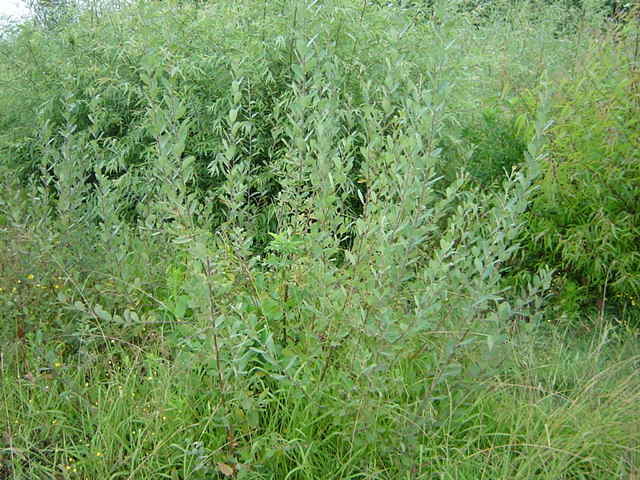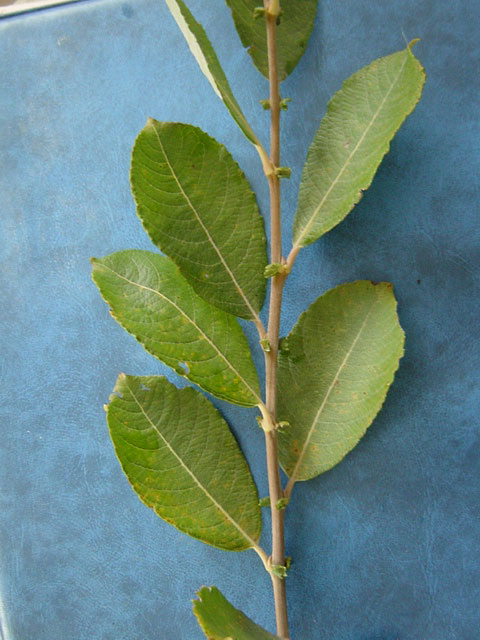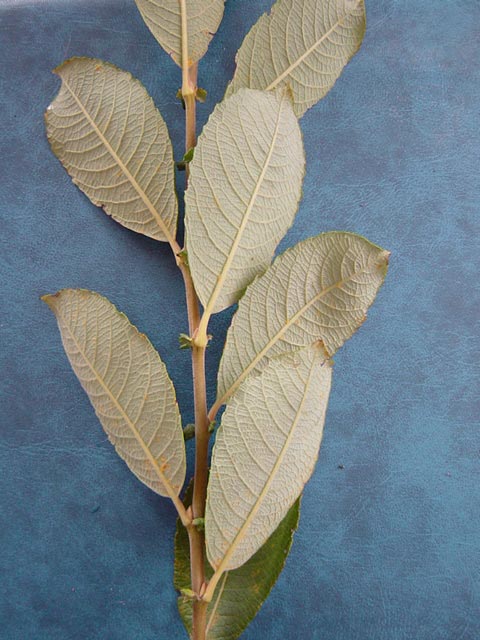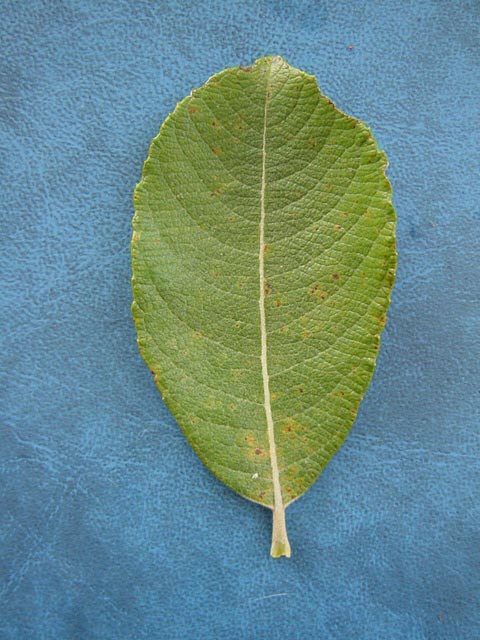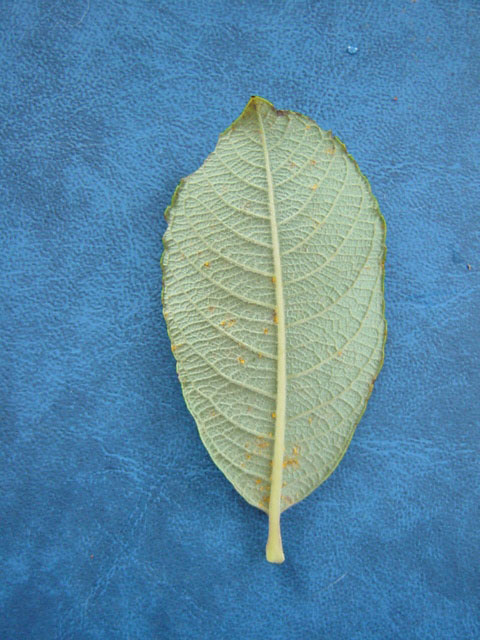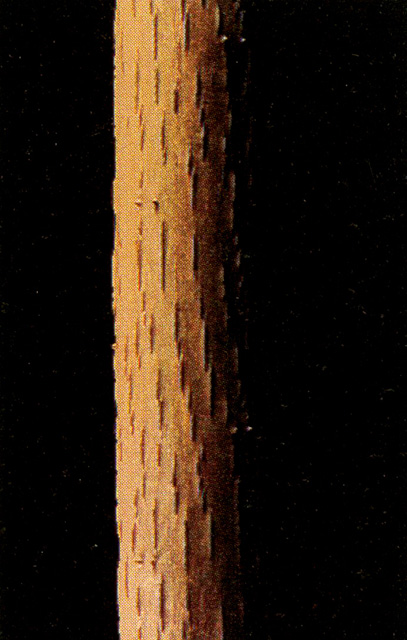Willow Identification Key: Salix cinerea var. oleifolia
Common Name:
Grey willowScientific Name:
Salix cinerea var oleifolia (often known as S. atrocinerea)New Zealand Clones:
Female: Oleifolia NCCB
Male: M, W, Tricolor Mac (not sub-species oleifolia)
Technical Description:
Habit: Shrub or small tree, 6-9 m high, usually spawling and multistemmed but sometimes forming a distinct trunk, often forming dense thickets.
Shoots: Greenish, greyish, redish or purple, usually hairy at first, becoming hairless. Long striations visible on wood underneath bark.
Leaves: 2-7 cm long, 1.5-3.5 cm wide, generally oval, broadest above the middle, sometimes elliptic, tip shortly pointed, sometimes twisted, margins sparsely and irregularly toothed or sometimes without teeth, underside densely covered in grey hairs or sometimes sparsely covered in reddish brown hairs, not bitter.
Catkins: Male and female; more or less erect, broad cylindric, 1.5-3.5 cm long; appearing before the leaves emerge.
Comments: Both sexes of grey willow were introduced in the 1860s and it has since spread prolifically through swamp areas, particularly in Auckland, Bay of Plenty and Waikato.
The Oleifolia sub-species has dark shoots, soon hairless, and leaves with some rusty red-brown hairs below. Male flowers of S. cinerea often have orange or red anthers, whereas they are always yellow in the other sallows, including S. x reichardtii.
